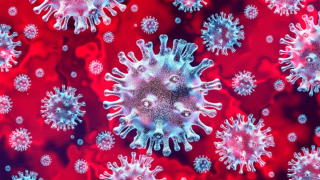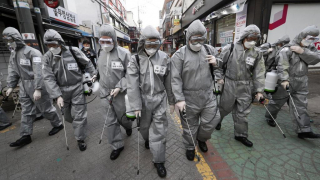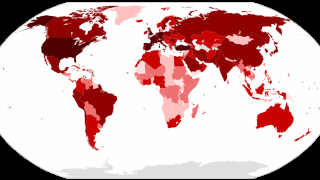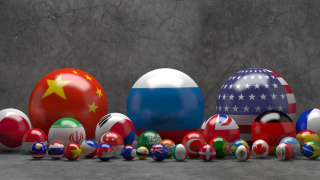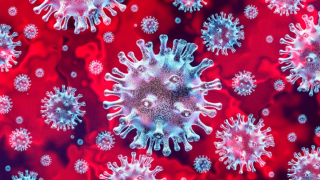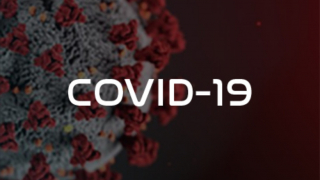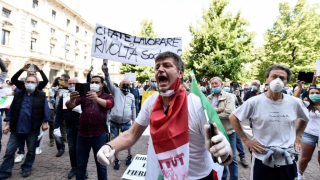We are not immortal raccoons: funk does not save our lives, it takes it away
The dead used to control the living, contempt for work, hatred for those who rebel against the sofa. "What a petty and materialistic view of man. Here you risk your life and not only for COVID”. Interview with Claudio Risé.
“This is the last straw: either you change, or you really risk your life, and not just for COVID-19”. Claudio Risé wrote it on Truth [1] last December 6 and reiterates it today in Tempi, “an anthropological disaster is taking place, a complete reversal of the reality of living”. A year has passed and the path of those who walk, move, exist, are still cluttered by the victims of the pandemic. There was no commitment to live in their name and honor, wrote the great psychoanalyst:
“The dead were instead used to control the living: they explained to us that we had to stop working, no longer go to mass, not sing, and stop all activities, out of respect for them, the dead by COVID. In this, however, there is neither mourning nor its elaboration. There is only the attempt to stop life, the multiplication of fear and the invitation to passivity. (…) Elaboration of mourning means participating deeply and seriously in a dramatic phase for people and the community and transforming it into behaviors and activities with new directions and forms of life, healthier and stronger. (...) The vital instinct leads you to want to live life fully with its difficulties, as well as to seriously mourn for the dead, which then commit you even more in life and its continuation. The rest are mental acrobatics, which hide a substantial selfishness and a terrified gaze on existence.”
From the dead as mass blackmail to the disdain for Man’s work
This is a great piece on the subject of the victims of the pandemic reduced to mere accounting or a weapon of mass blackmail by a government that for months has given us a single icon:
“The arrest, the stasis: all stopped, at home, in gym clothes or pajamas, with a long beard like our own ministers, trusting in any subsequent refund and reopening, now not even too hoped for”.
On the other hand, no productive reconversion was attempted in the “pandemic management” plan. No enhancement of the efforts of those who were only desperately asking to work: the absence of goals, horizons and “sensible efforts” culminated last weekend, in the extension of the closures decided in extremis (pay attention: with only 24 hours notice) by the Ministry of Health, getting back in desperation plant managers and mountain workers.
Economic sacrifices, investments, and contracts, to fulfill the security protocols: everything went up in smoke, so much, the ministry assures us, “refunds will arrive”.
Risé comments to Tempi:
“What a mean and narrowly materialistic vision of man. The most evident figure, amid this glorification of lockdowns, of closures, of the raccoon as a hero of today [2], is contempt for work. Contempt for the condition of workers, their need to work for a living, but also the contempt for the meaning of work for human life, treated as a burden from which the various national salvation committees want to liberate us graciously by forcing us to shut ourselves up at home with the tip of refund. As if work were not a vital experience, not just educational and learning: an expression of oneself, absolutely central to human life.”
Health and sofa: the reduction to raccoons with no desires
Risé cites studies by the dozen, in all languages and from all parts of the world, on the other pandemic; the one triggered by the devaluation of the psychological effects given by the annihilation of man's life force. Something deep is making sick the raccoon-man who has started to relate to the enterprise of living and the other through screens:
“Diseases for which there is still no vaccine, such as psychosis, depressive, delusional, dissociative developments. Genesis is not a joke, it makes sense that man must earn to live, get food with the sweat of his brow. This is not a punishment or a burden but an anthropological reality. And neuroscience explains well how an activity that subjects people to effort, commitment, corresponds to a certain brain development, while being on the sofa corresponds to another, much more miserable and problematic”.
A partial vision of man dominated by bad faith and lockdown as destiny: shopping gets “wild”. Gatherings “intolerable, irrational, unjustifiable”. Skiers (or runners, tourists, soccer lovers, young people) “irresponsible”. Going to the midnight mass at Christmas “a heresy ". Going to the Vatican museums means creating a “hellish carnage”. Even the holiday season is conducive to closures because “you don't work or go to school”.
“But this simplification of the complexity of reality is the daughter of the reduction of a gaze on man: the legislator, or whoever, for him, projects the poverty of his reasoning onto others, as if free time, vacation, were not a significant time for freedom. As if beyond staying still at home, equipped with a PC or smartphone to work or study, the man had no goals or desires beyond the protection of health. However, the meaning of life is not to avoid death.”
Funk becoming virtue, the delirium of avoiding the death and the cross
While the chronicles are inhabited by the first victims of the “antivital” lockdowns, children and young people who have disappeared from the streets and ended up injuring themselves or trying to kill themselves (sometimes succeeding) in the bedroom, fear celebrated as an adult virtue – “but that is nothing but the old cowardice, the very vulgar fear, not taking responsibility for the situation and cowardly discharging it on others” as Risé reiterated in another perfect piece [3] - opened the way to resentment towards anyone who wants to go free.
“And yet life - the professor explains- is nothing but a great risk, a continuous struggle for survival, a test to go through from birth onwards. Great are the joys and its rewards, yet we absolutely cannot avoid the risky and definitely painful aspect that life has in itself. Jesus Christ dies on the cross, incarnated by entering the body of mortal man: even the son of God dies and His story is that of the history of every single person, of every single patient. This delusional avoidance of death, of human drama, is one of the figures of modernity from the French Revolution, in particular, onwards: to get out of suffering to build a life of pleasure, sleepiness and tranquility. However, this is a completely imaginary life. That to risk, to drama, to death is an imaginary immunity. It is right to defend oneself with all the means offered by science at our disposal, but we will never be immune, we will always die. It is the tragic and at the same time sign of greatness of all human history. Even the raccoon, this modern day hero, eventually dies. Life is not a disease. And living it sheltered by four walls will not make us immortal.”
[Translator note: Caterina Giojelli is a talented journalist for the newspaper "Tempi". She interviewed Claudio Risé, an Italian writer, journalist, university professor and psychotherapist of Jungian psychoanalytic training and orientation, precisely on the situation in Italy today. The fear of a COVID death rules the minds of Italians making them accept the most absurd quarantines that are destroying the country's economy. Not only the economy: also, the psyche of the Italians who submit without a word to the health regime that is sinking us to the bottom of the abyss. indeed, being lazy as raccoons [4] is not the way to salvation as much as that to our common destruction.]
[1] Italian only: https://www.laverita.info/ci-hanno-rubato-pure-lelaborazione-del-lutto-2649325708.html
[2] Italian only: https://www.tempi.it/o-il-santo-o-leroico-procione-con-le-chiappe-al-caldo/
[4] https://www.youtube.com/watch?v=sSig2omUs0s
**********************************
Original column by Caterina Giojelli:
https://www.tempi.it/non-siamo-procioni-immortali-la-fifa-non-ci-salva-la-vita-ce-la-toglie/
Translation by Costantino Ceoldo


